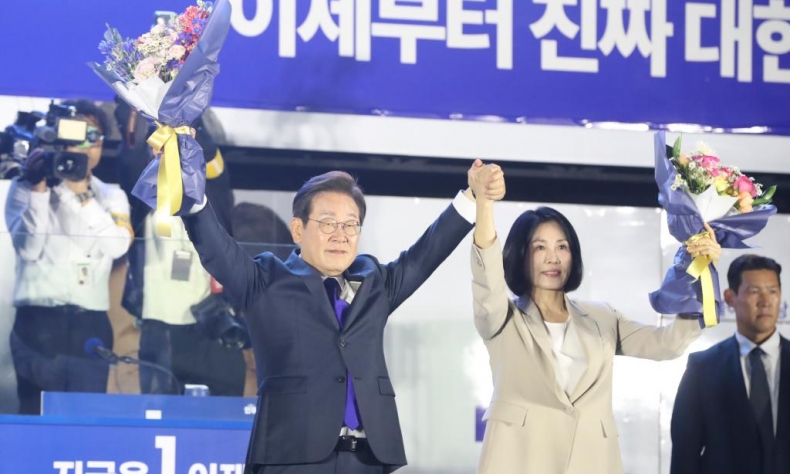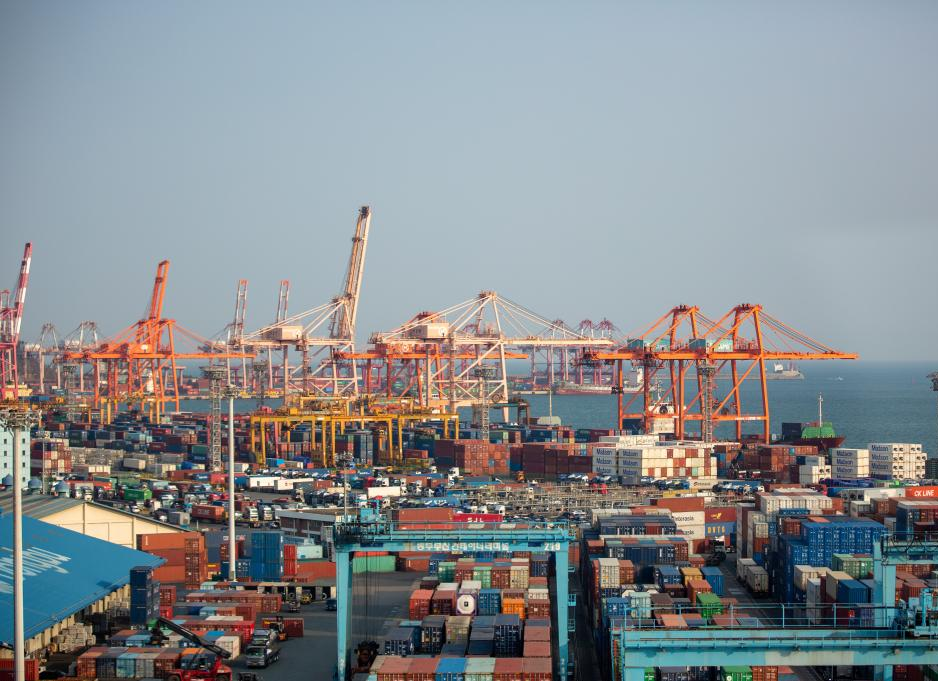With Lee Jae-myung Elected, Can China-ROK Relations Be Recalibrated?

Striking a balance between China and the U.S. and advancing cooperation with China will be the key to testing whether Lee’s administration has genuine intent and the capacity to deepen the country’s strategic partnership with China.
On June 3, the Republic of Korea (ROK) held its 21st presidential election. Lee Jae-myung, candidate of the Democratic Party, won with 49.42 percent of the vote, defeating his major rival Kim Moon-soo of the ruling People Power Party by a broad margin of 8.27 percentage points. Lee was sworn into office on June 4.
The snap election followed the impeachment of former President Yoon Suk-yeol in April. Yoon was ousted for his botched martial law bid in December 2024.
Ascent to presidency
Born in 1964 into a poor family in Andong, North Gyeongsang Province, Lee was the fifth of seven children. After elementary school, he dropped out to work in a factory, where an accident left his left arm mildly disabled. Through self-study, he later entered Chung-Ang University’s College of Law, which was a turning point that embedded his image as a “voice of the common people.” As mayor of Seongnam from 2010 to 2018, he championed public housing and campaigned to build municipal hospitals, winning widespread support.
His political path, especially as head of the Democratic Party between August 2022 and April 2025, further bolstered his appeal. In August 2023, he staged a 24-day hunger strike to protest Yoon’s policies and Japan’s discharge of nuclear-contaminated water—ending only when his health faltered and he was hospitalized. A dramatic stabbing attempt in the southeastern port city of Busan in January 2024 left Lee wounded in the neck. In response, he called for ending the “politics of hatred.” The Busan District Court later sentenced the attacker to 15 years in prison and its verdict said the man had long loathed Lee because of differences in political opinions.
In November last year, Lee was handed a one-year prison term, suspended for two years, by the Seoul Central District Court on charges of dissemination of false information during the 2022 presidential election. Prosecutors had sought a two-year jail sentence for Lee in the first and the appeal trials. By law, he would lose his parliamentary seat and be barred from running in an election for 10 years if he had received a fine of over 1 million won ($680) for any election law violation that had been confirmed by the Supreme Court.
On March 26, the Seoul High Court overturned the lower court’s ruling, easing a major legal risk that could have blocked Lee’s path to the presidency. Though the Supreme Court demanded a retrial and sentencing, the hearing was postponed to June 18, after the presidential election.
Since entering politics, Lee was twice elected to the National Assembly, the ROK’s unicameral legislature, in 2022 and 2024. On April 27 this year, he secured the Democratic Party’s presidential nomination with 89.77-percent support, the highest-ever recorded in the party-affiliated primaries since the country’s democratization in 1987. Lee not only solidified his liberal base but also captured swing voters and even conservative voters—thanks in part to Yoon’s dropping approval over the past three years and his short-lived implementation of martial law.
Challenges ahead
After taking office, Lee’s primary challenge will be how to restore domestic political stability. Though Lee’s party holds a majority in the National Assembly, the opposition still controls about 35 percent of the legislative seats and the People Power Party remains influential, demanding utmost political acumen from the new government to achieve its goals.
The second challenge is how to deal with the “reciprocal tariffs” imposed by the U.S. in early April. On April 24 in Washington, D.C., the ROK and the U.S. held high-level trade talks aimed at averting U.S. import duties before the 90-day tariff pause, announced by U.S. President Donald Trump, expires on July 8.

The two sides have also initiated a second round of technical consultation in six major areas, including balanced trade, non-tariff barriers, economic security, digital trade, rules of origin and commercial considerations. A ministerial meeting is slated for mid-June to finalize a deal. However, the U.S. has accused the ROK of having more than 20 non-tariff barriers and demanded that the latter raises its share of the cost for hosting U.S. troops. The ROK hopes to revive a full free trade agreement between the two sides.
The third is how to revive the national economy. Under Yoon’s presidency, the ROK’s GDP growth slowed down from 3.2 percent to 1.1 percent. The Korea Development Institute (KDI) projects merely 0.8-percent growth for 2025. Declining exports, investment, consumption and equity markets—together with rising consumer prices, exchange rates and unemployment—signal deep malaise of the country. A five-month political chaos over Yoon’s impeachment further rocked the economy.
Lee’s inauguration speech prioritized restoring growth and living standards, though external factors will continue to influence the recovery of this export-oriented economy.
China-ROK relations
Lee said he pursues “national interest-centered pragmatic diplomacy,” emphasizing that an adaptable and practical foreign policy should be implemented based on national interests while maintaining autonomy and diversity.
While affirming the ROK-U.S. alliance and trilateral Japan-ROK-U.S. cooperation, the new ROK government might seek to expand pragmatic cooperation with China, Russia, other countries in Asia and the Global South—the nations of the world considered to have a relatively low level of economic and industrial development and typically located to the south of more industrialized nations—so as to cope with new changes in the international political and economic landscapes.
Lee has stated that the ROK and China have close economic ties and are geographically close, and they should expand cooperation in areas such as trade, culture and climate governance. He also advocates jointly stabilizing the Korean Peninsula through strategic communication at all levels, and strengthening regional cooperation through the institutionalized trilateral cooperation mechanism among the ROK, China and Japan.
Lee has also taken a prudent stance on the Taiwan question, which is purely an internal affair of China, marking a clear shift from Yoon’s provocative approach. This position could help improve strained relations and rebuild strategic trust with China.
Yet numerous constraints remain. Strong anti-China sentiment and right-wing politics in the ROK persist, as does economic competition. Meanwhile, the U.S. is expected to pressure the ROK to strengthen alignment on political, economic and military fronts—possibly threatening erosion of the alliance or even U.S. troop withdrawal if Seoul resists.
Striking a balance between China and the U.S. and advancing cooperation with China will be the key to testing whether Lee’s administration has genuine intent and the capacity to deepen the country’s strategic partnership with China.
The author is director of and professor at the Center for Korean Peninsula Studies at Shanghai University of International Business and Economics.
 Facebook
Facebook
 Twitter
Twitter
 Linkedin
Linkedin
 Google +
Google +










